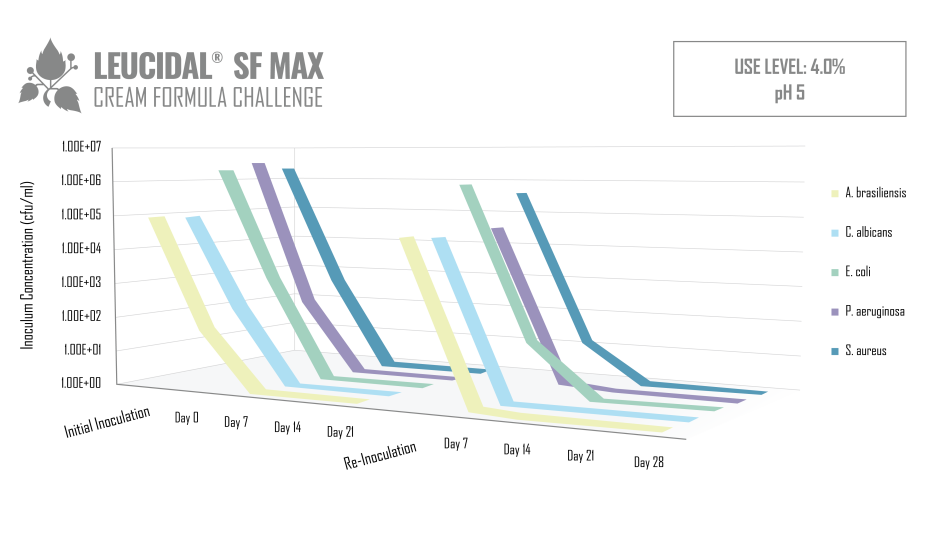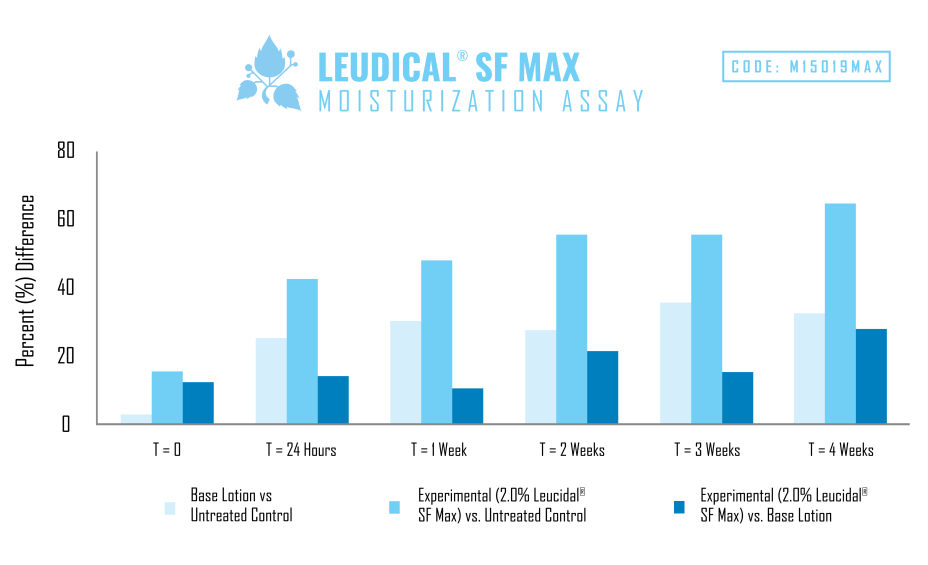Leucidal® SF Max
Background
You have spoken, and we have listened. Leucidal® SF MAX is the latest iteration of our Leucidal® line. Optimizing the fermentation process to tighten the specification for bacteriocins, Leucidal® SF MAX provides broad spectrum antimicrobial results with an increased degree of confidence.
Consumer choice is the most important factor when it comes to cosmetic sales. Today, a growing number of consumers are opting to move away from synthetic preservatives such as parabens, formaldehyde donors and phenoxyethanol. In addition to public pressure, the use of these synthetic materials in cosmetics is also becoming more strictly regulated. For these reasons, formulators have been actively searching for alternatives to synthetic preservatives that can provide broad spectrum antimicrobial activity and can be added into a wide range of cosmetic applications.
Active Micro Technologies (AMT) has developed a full line of products derived from naturally occurring compounds that provide broad spectrum antimicrobial protection. As a result, these novel natural antimicrobials are considered self-preserving cosmetic actives and therefore can be used as consumer- friendly alternatives to synthetic preservatives in a wide range of cosmetic applications.
Science
Leucidal® SF MAX is a powerful probiotic-based ingredient created by the fermentation of Lactobacillus in a defined growth medium. Lactobacillus is one of the species of microorganisms used to produce fermented products, such as kimchi and sauerkraut, a Korean dietary staple, from cabbage. Like many members of the lactic acid bacteria family, Lactobacillus is capable of restricting the growth of other microorganisms by acidifying its environment. However, Lactobacillus also produces novel antimicrobial peptides, known as bacteriocins, that are capable of providing broad spectrum antimicrobial protection. capable of restricting the growth of other microorganisms by acidifying its environment However, Lactobacillus also produces novel antimicrobial peptides, known as bacteriocins, that are capable of providing broad spectrum antimicrobial protection. During the manufacturing process, lysozyme is added to the ferment filtrate to facilitate a controlled cell lysis to ensure the release of the antimicrobial peptides for maximized activity.
Benefits
A skin moisturization study was performed using an untreated control, generic cream base, and an experimental with the same cream base containing 2.0% Leucidal® SF Max. Comparative moisturization results from this study are shown in Figure 1. When compared to the base cream Leucidal® SF Max improved moisturization by 14.38% and after 24 hours and by 25.00% after four weeks. Based on these results, adding this innovative product provides the formulator the opportunity to capitalize on both the natural antimicrobial properties of Leucidal® SF Max, as well as its ability to provide potent moisturizing benefits to the cosmetic formulation. Leucidal® SF Max was designed to maximize the effectiveness of the antimicrobial peptides in our original Leucidal® Liquid SF. The ability of Leucidal® SF Max to inhibit the growth of a variety of bacteria and fungi was determined using the Minimum Inhibitory Concentration (MIC) test. The results are illustrated in Figure 2, showing that this material provides broad spectrum antimicrobial protection. The positive MIC screening results warranted further testing to confirm its ability to provide product preservation. Double Challenge Tests were completed using either 2.0% or 4.0% Leucidal® SF Max in a generic cream base formulation at pH values of 3, 5, and 7. Samples were inoculated with E. coli, P. aeruginosa, S. aureus, C. albicans, and A. brasiliensis. During the rst 28-day incubation period, samples were periodically collected and tested for the presence of these microorganisms. Following this initial 28 days of incubation, the cream samples were then re-inoculated with the microbial cultures and sampled over an additional 28-day period. Figure 3 shows the positive preservation results for Leucidal® SF Max tested at 4.0% in a generic cream base formulation at pH 5.
Use Recommendations
Leucidal® SF Max can be used in a wide range of cosmetic products, however to ensure optimum results we recommend using the following guidelines. Incorporate the product into formulations at a pH between 3 and 8, during the cooling phase of the process at temperatures lower than 70°C.



